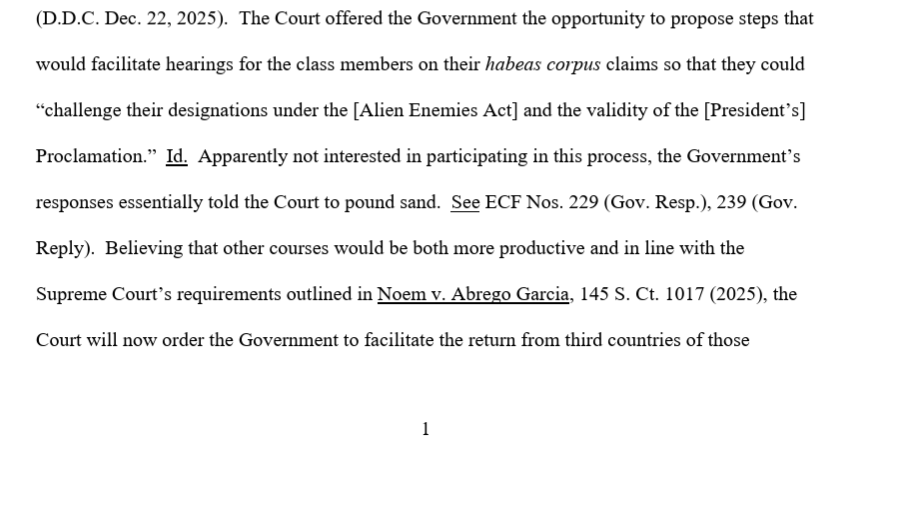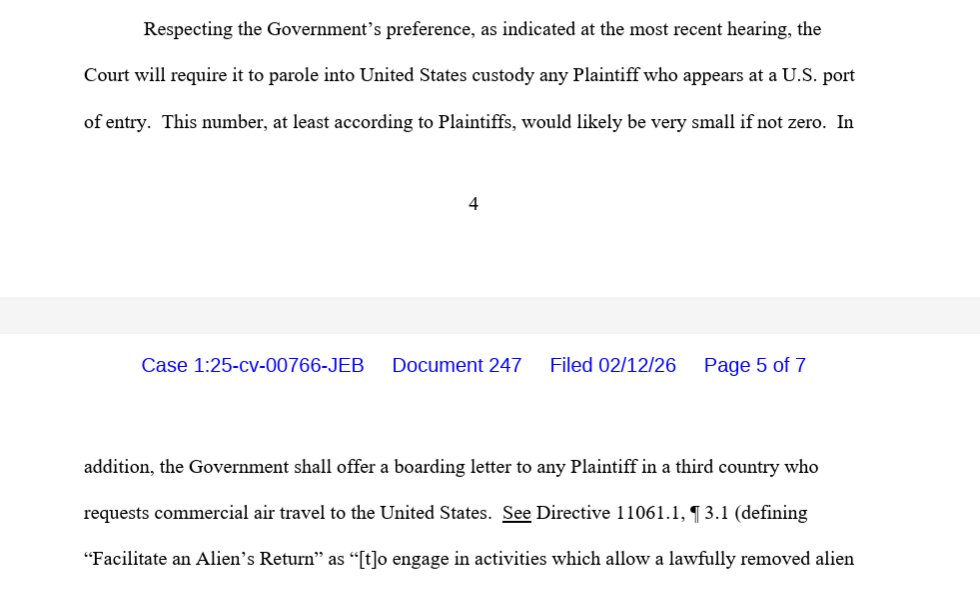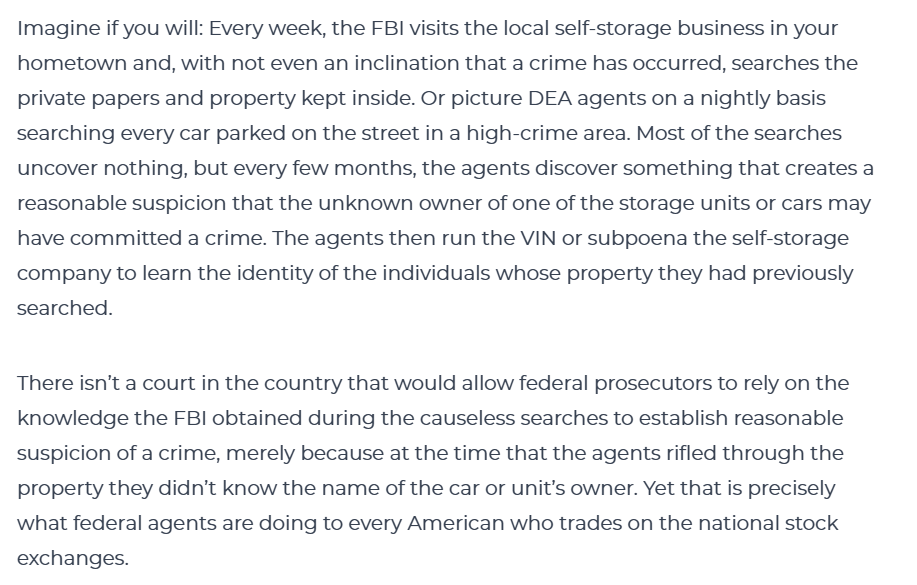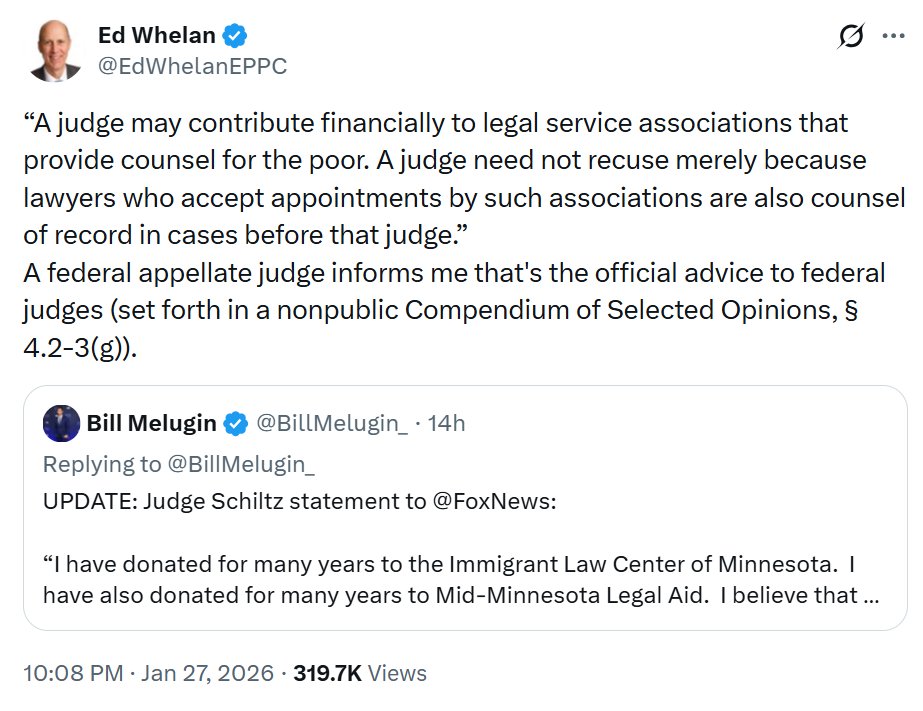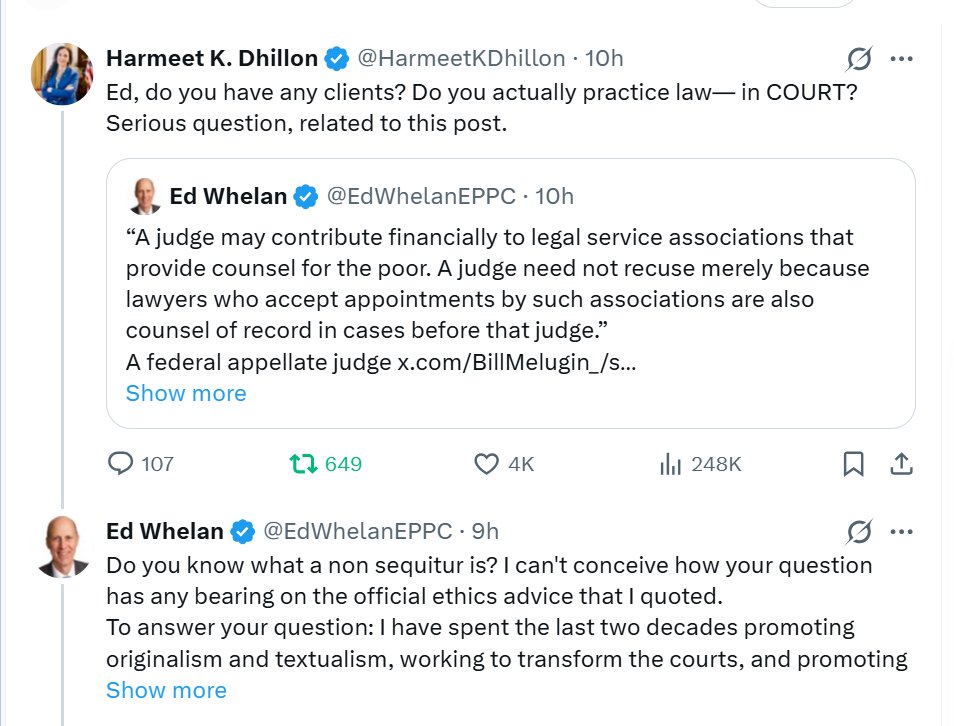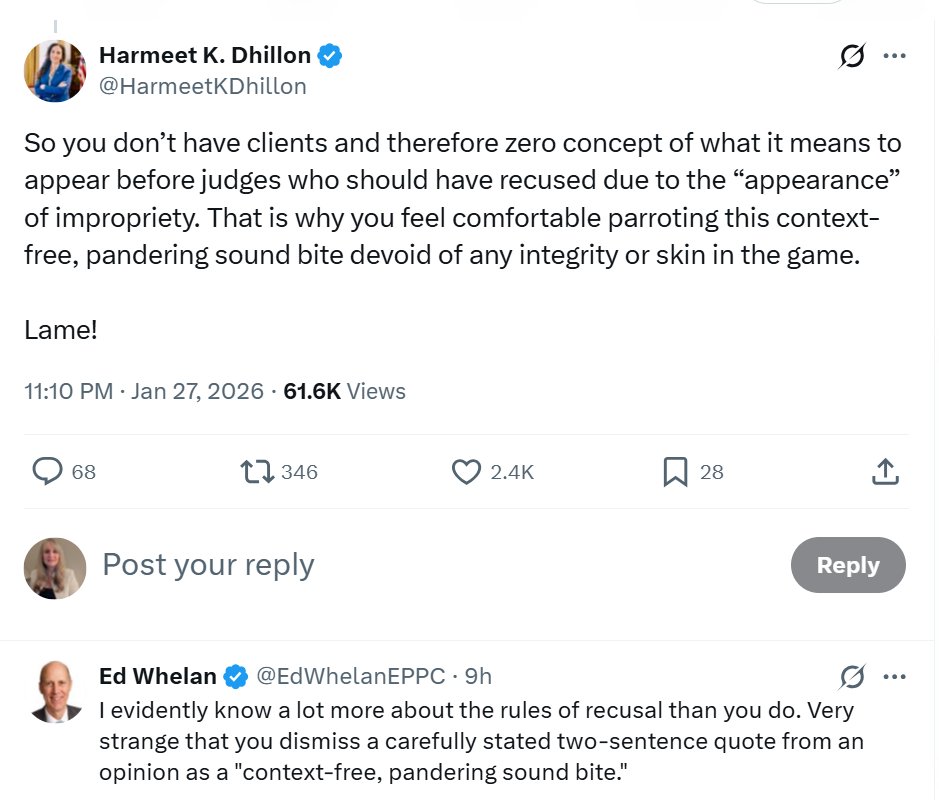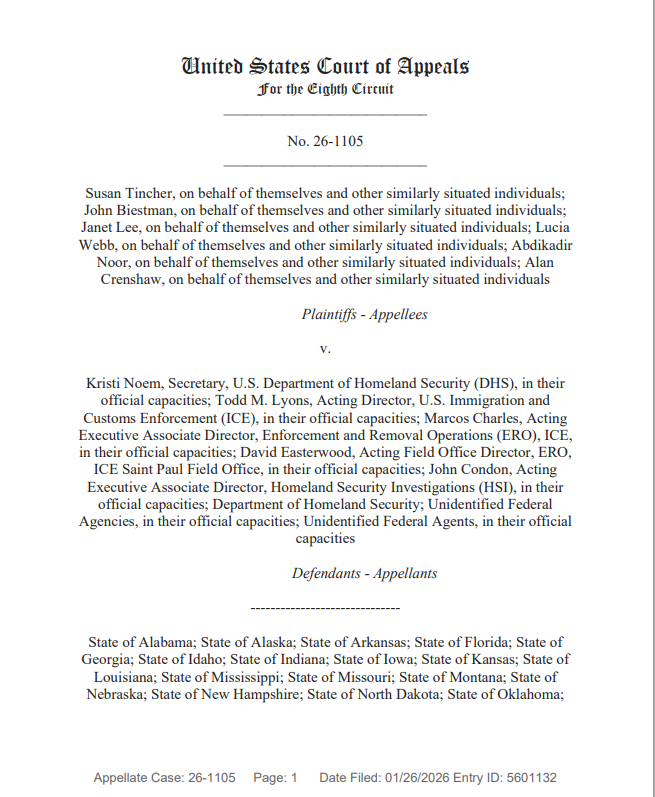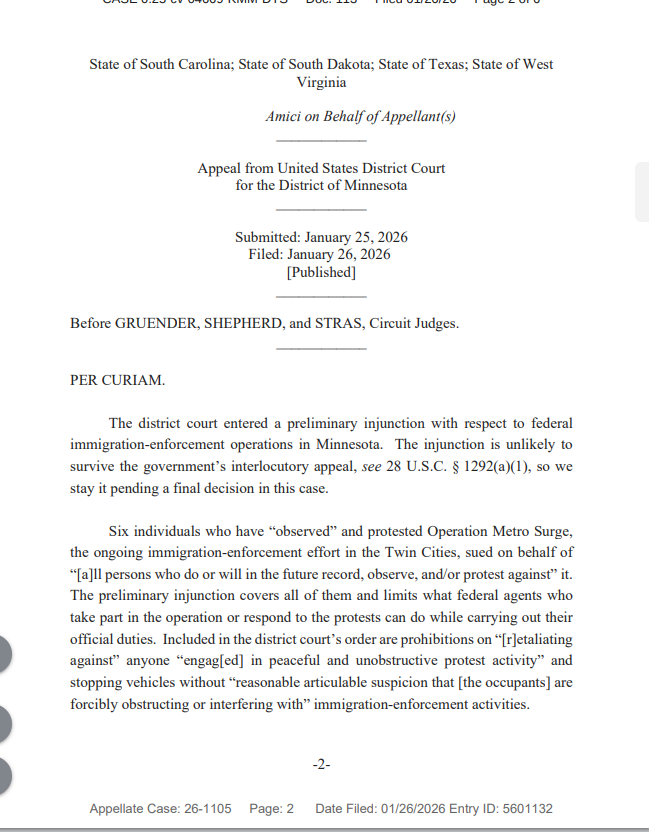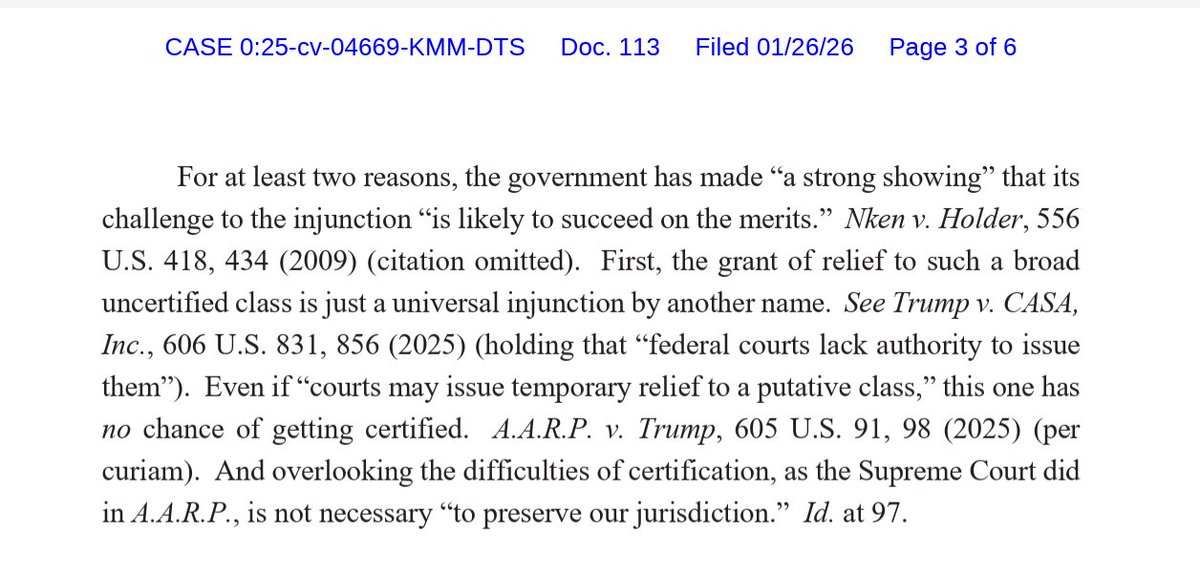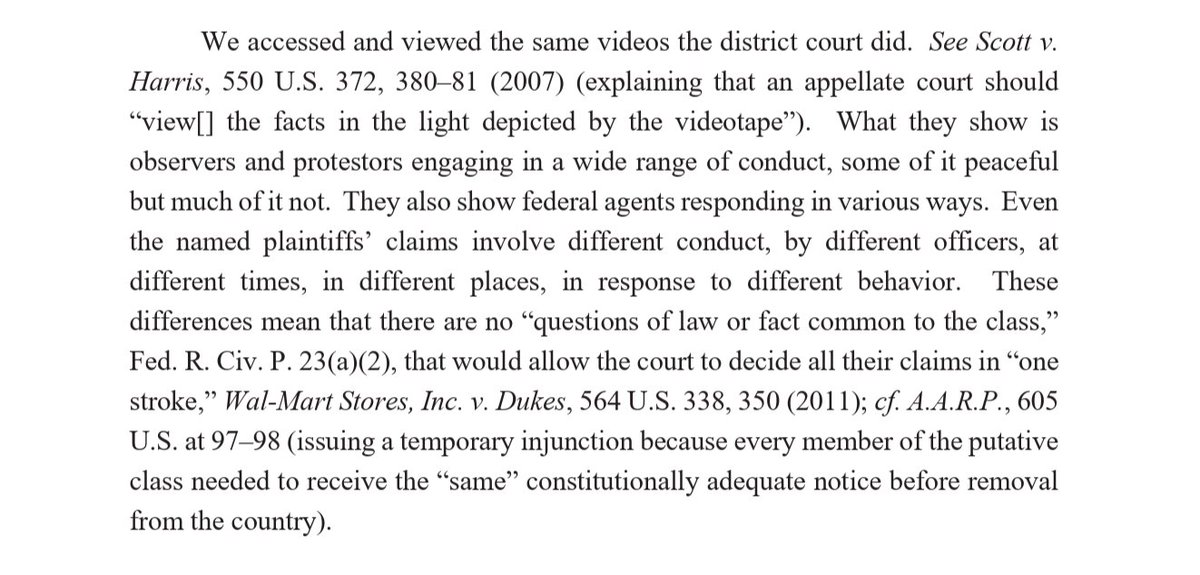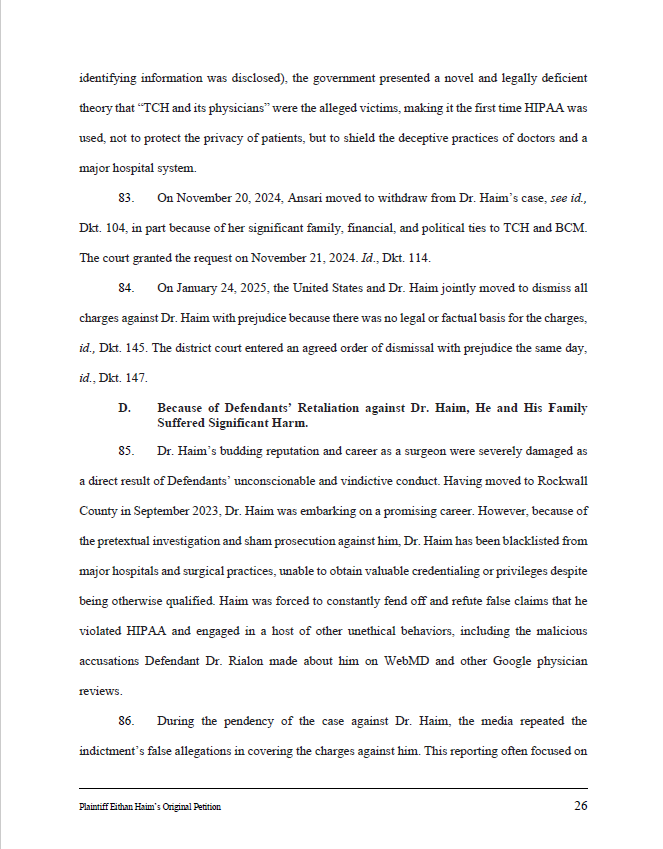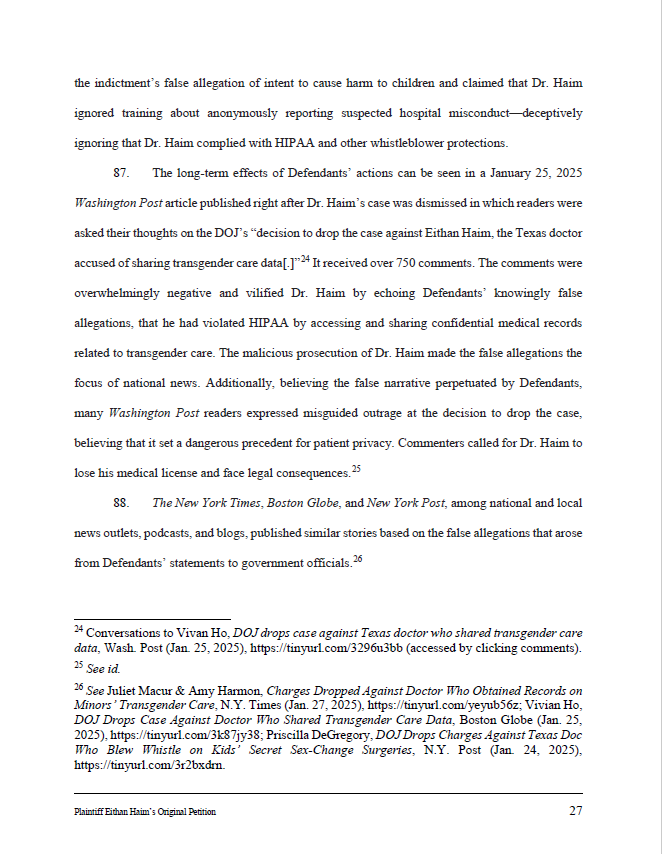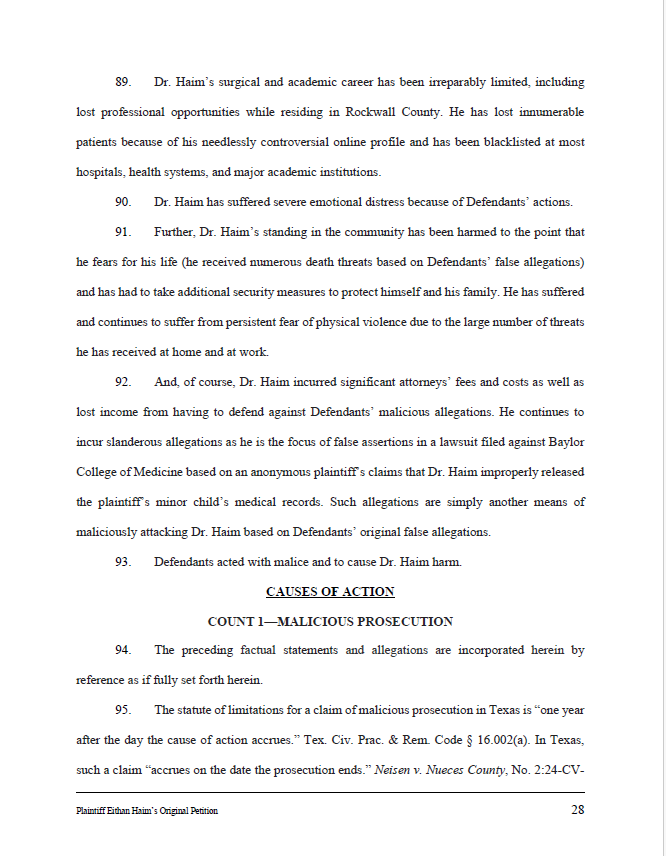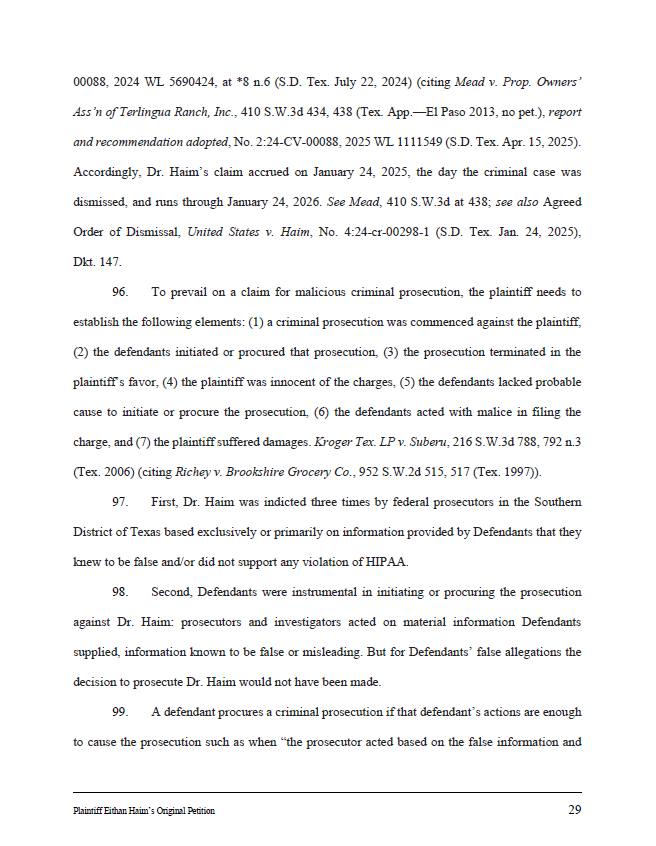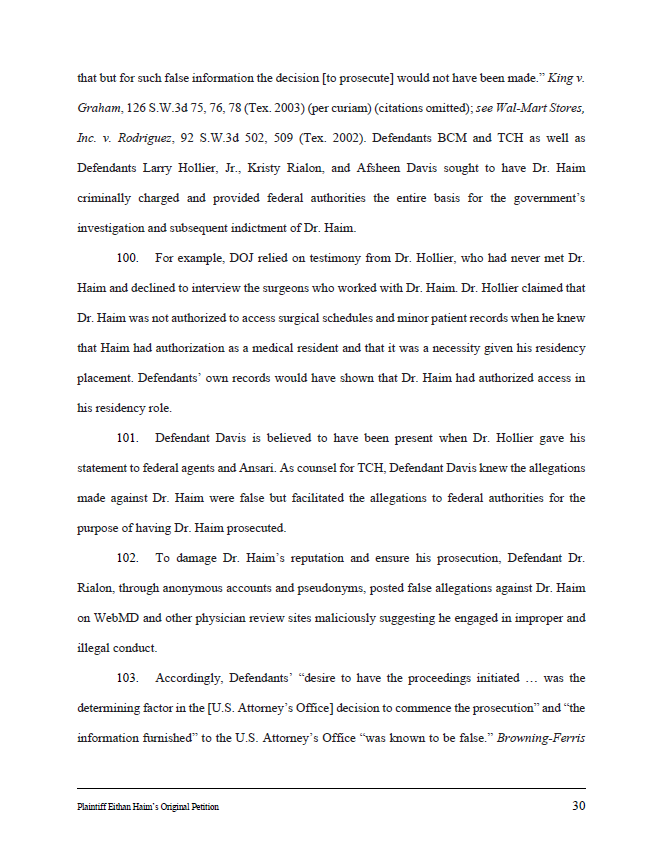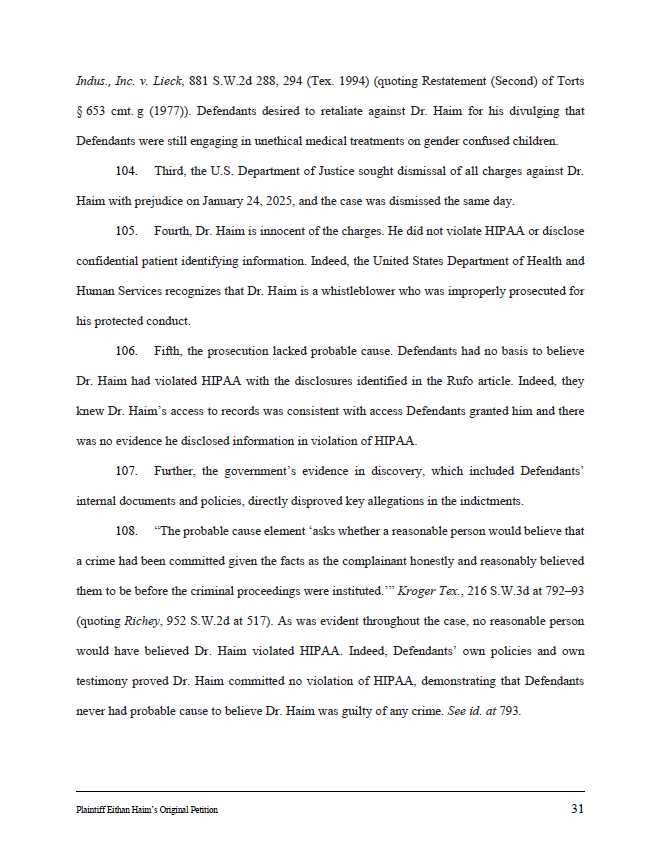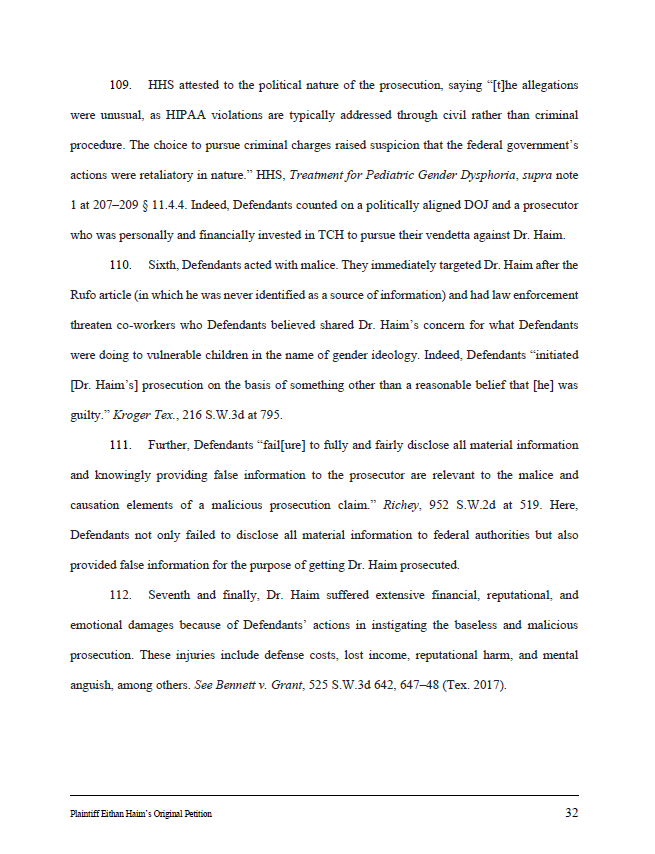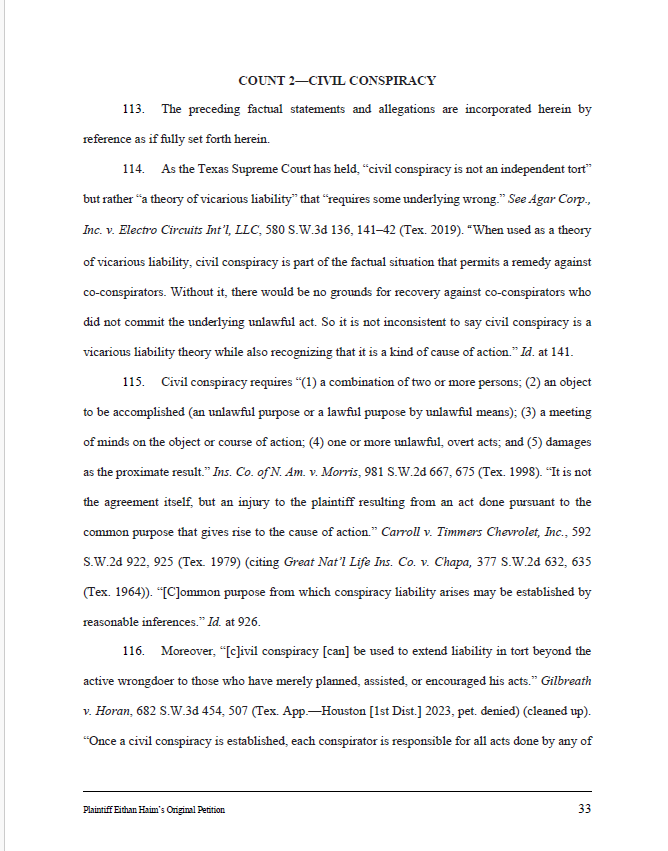THREAD II: And now on to the second brief filed by @carterwpage attorney, with @McAdooGordon serving as local counsel. This brief responds to GOVERNMENT's motion to dismiss. The other brief was the 8 individual actors: This is DOJ/FBI as entities. storage.courtlistener.com/recap/gov.usco…
7/ Still trying to zero in on who the actual leaker was. Doesn't matter if they were all in on it but the emails b/w Strzok and Page (see THREAD I) are suggestive. 

8/ Back shortly: Math & lunch time for DS.
10/ These are Page's claims against government as an entity. The FTCA is basically a federal statute that allows you to sue it under basic "tort" principles that apply to business/individuals. 

11/ Patriot Act claims are based on gov't unlawful use of information gathered. Here, Page claims gov't unlawfully used info in "media leaks" strategy and also in later FISA applications. 



• • •
Missing some Tweet in this thread? You can try to
force a refresh













